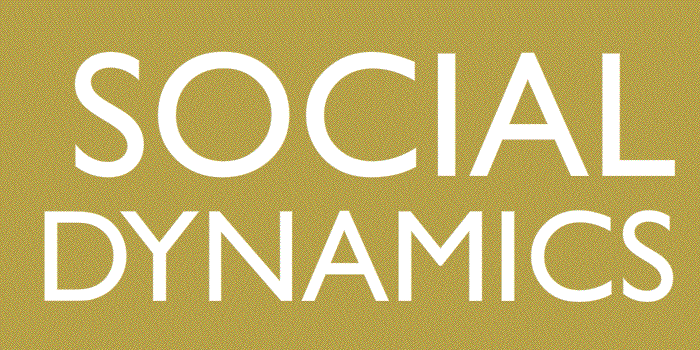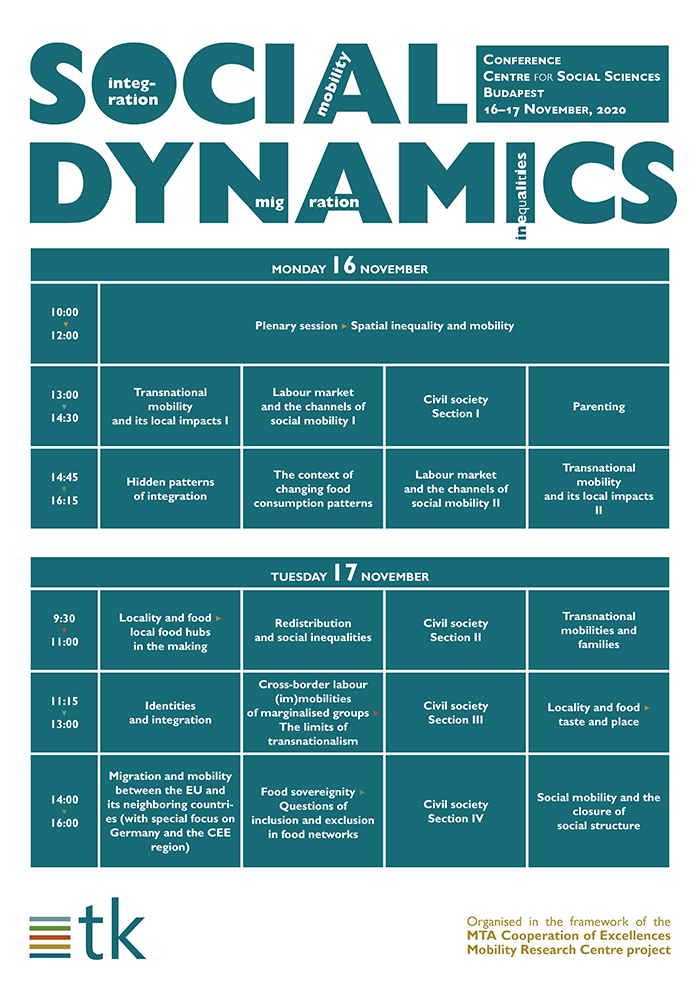Conference at the Centre for Social Sciences, Budapest
16–17 November, 2020
Programme with panels and sections
Goethe Institut Budapest is organising a joint online conference: VERSCHLUNGENE LINIEN.
Click here for a detailed programme in German.

According to international social science research, in recent years social disparities have increased and unprecedented social phenomena have been exacerbated and these have led to new political and social responses and a reorganisation of the social reproduction system. The purpose of the conference is to gain a clearer picture of social shifts and immobility in the post-millennium international context. Social mobility is hampered by growing inequalities, income and wealth distribution imbalances and a dysfunctional school system, while new channels for mobility have opened up, with international and national migration becoming massive.
The financial, migration and environmental crisis has triggered a stronger than ever political integration / disintegration of society. The former system, targets and paradigm of welfare regimes, the range of beneficiaries and the source and use of financial resources have taken a new turn in many countries, serving social stability rather than the chance to change disadvantages. Citizens' (civic) activity and interest-enforcement potential are weakened and the legitimacy of political integration is filled with populist, authoritarian elements.
The conference or some of its panels may be held online. The organisers will decide on this later depending on the situation of the virus.
Registration and participation at the conference are free of charge. All costs are to be covered by the participants.
Organizing committee:
Dorottya Szikra, Imre Kovách (chair), Boldizsár Megyesi, Bence Ságvári and Attila Papp Z.
Call for Papers
Working groups (for a detailed description of working groups click here)
1. Social inequality and integration
2. Political integration of society
3. Hidden patterns of integration. Inequalities and imbalances in large networks
4. Redistribution and Social Inequalities in a Changing Political and Economic Context
5. Civil society, social movements and the structural conditions of democracy in Western and Central and Eastern Europe
6. The social consequences of the transformation of food production and consumption
7. Examining Social Mobility Using Digital Historical Databases
8. Transnational social mobilities
9. Child (im-)mobilities in Central and Eastern Europe: critical perspectives on precarity and potentiality in transnational care arrangements
10. Changing norms of caring and parenting practices















